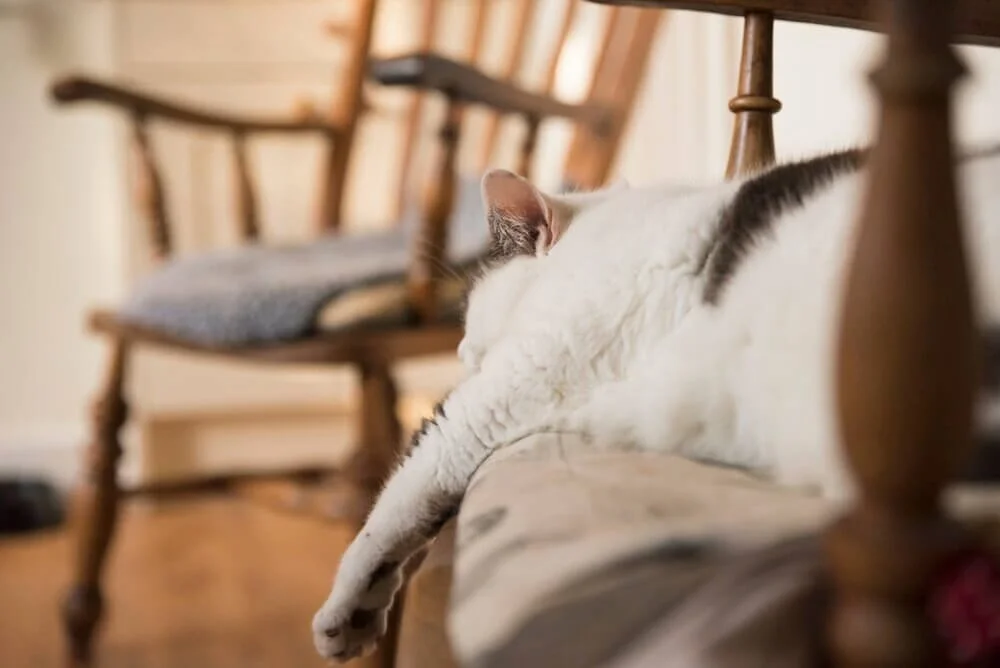THINGS WE DO

WEIGHT MANAGEMENT AND NUTRITION
At Evervet, we understand the pivotal role that nutrition and weight management play in the overall well-being of your beloved pets. Our commitment to ensuring your pet's health and vitality is reflected in our approach to their nutritional needs.

Weight Management
KEY PRINCIPLES
Tailored Nutrition Plans: We recognize that each pet is unique, and their dietary requirements vary based on factors such as species, breed, age, and health conditions. Our veterinary team is dedicated to crafting tailored nutrition plans to suit your pet's individual needs.
Quality Nutrition: Evervet advocates for high-quality pet food that aligns with your pet's specific nutritional needs. We prioritize whole, quality ingredients and avoid fillers or harmful additives.
Portion Control Guidance: Overfeeding is a common concern that can lead to obesity and related health issues. Our experts provide guidance on appropriate portion sizes based on your pet's size, age, and activity level.
Educational Resources: We offer educational resources and advice to help you understand the do's and don'ts of pet nutrition, including the dangers of feeding pets from your table.
Exercise and Health: In addition to proper nutrition, regular exercise is key to maintaining your pet's weight and overall health. We provide guidance on incorporating physical activity into your pet's routine.
Consultation and Support: Our experienced veterinarians are here to support you. If you have concerns about your pet's weight or nutritional needs, we offer consultations to devise a tailored diet and weight management plan.

Health considerations
Disease Prevention
Obesity increases the risk of diabetes, joint problems, heart disease, respiratory issues, and immune system weakening. Weight management contributes to better overall health, improved quality of life, and an extended lifespan for pets. Regular exercise and a balanced diet, guided by a veterinarian, are essential components of effective weight control.
Viral Dieases
Lorem ipsum dolor sit amet, consectetur
adipiscing elit. pellentesque ligula id nibh
viverra, et consectetur.
Kittens
Ensuring your kitten gains weight appropriately is a vital part of routine kitten checkups. Poor weight gain may be a sign of parasite infestation or other health issues. Early intervention is very important
Puppies
Managing a puppy's weight is vital for healthy growth, joint development, and overall well-being. Monitoring their diet, following guidelines, and regular veterinary check-ups are crucial for proper weight management.
Rabbit & Ferrets
Managing obesity in ferrets and rabbits is crucial for preventing health issues, improving longevity, enhancing quality of life, reducing healthcare costs, and ensuring overall well-being. It involves a balanced diet, regular exercise, and veterinary oversight.
Arthritis Management
Research shows that managing a dog's or cat's weight appropriately can significantly reduce their need for oral antiinflammatory and pain medications and keep them active and healthy well into their older years.
The Dangers of Obesity
Overweight pets have more physical ailments and shorter lifespans than those of normal weight.
Excess weight predisposes to the following:
● Joint or locomotion problems including arthritis, spinal disc problems and ruptured ligaments.
● Breathing difficulties, particularly with exercise.
● Heart disease.
● Liver disease.
● Sugar Diabetes (Diabetes Mellitus).
● Heat intolerance.
● Lower resistance to infection, especially viruses.
● Greater surgical and anaesthetic risk.
● Mental irritability, which is related to discomfort.
● Increased constipation & flatulence.
● Non-allergic skin disease.
● Lower Urinary Tract Disease
What to Feed
The Trials of Dieting
Losing weight involves a change of lifestyle for your pet, including both an increase in exercise, if possible, and a change in diet. Weight loss should be accomplished slowly with a nutritionally balanced diet. Pets must be retrained to eat moderate amounts of food one to two times daily—Without Any Snacks in between. It will usually take between four and eight months to achieve normal weight.
All members of the family should be aware of the necessity for your pet to lose weight. One person feeding extra can undo all of your good work!
Less of a Normal Diet
This is the easiest, but also the slowest and least effective. To try to convince your pet that the same amount of food is still being fed, it often helps to add extra bran to the diet. This will maintain the volume of the food while decreasing the calories. Start by just adding a pinch of bran to the diet to get your pet used to the taste. Then gradually increase the amount while decreasing the amount of normal food. Sometimes you can get up to 20% bran in the diet. You should be aware that adding extra roughage to the diet will produce more faeces that may be a bit softer.
Special Prescription Diets
Just like the human obesity epidemic, over 55% of the pet population is overweight. Even a little extra weight can impact a pet's quality of life and relationship with family as the extra weight can reduce play time, impact mobility and affect the lifelong general health of your pet. Maintaining an ideal weight can help impact life expectancy by reducing the risk of weight-related conditions.
There are several prescription dog & cat foods designed specifically for weight reduction. Feeding this as the sole diet will definitely help your pet to lose weight. We have several different brands available, both in tinned & dry forms, so every taste is usually catered for.
MORE OF
WHAT WE DO

Be forever












